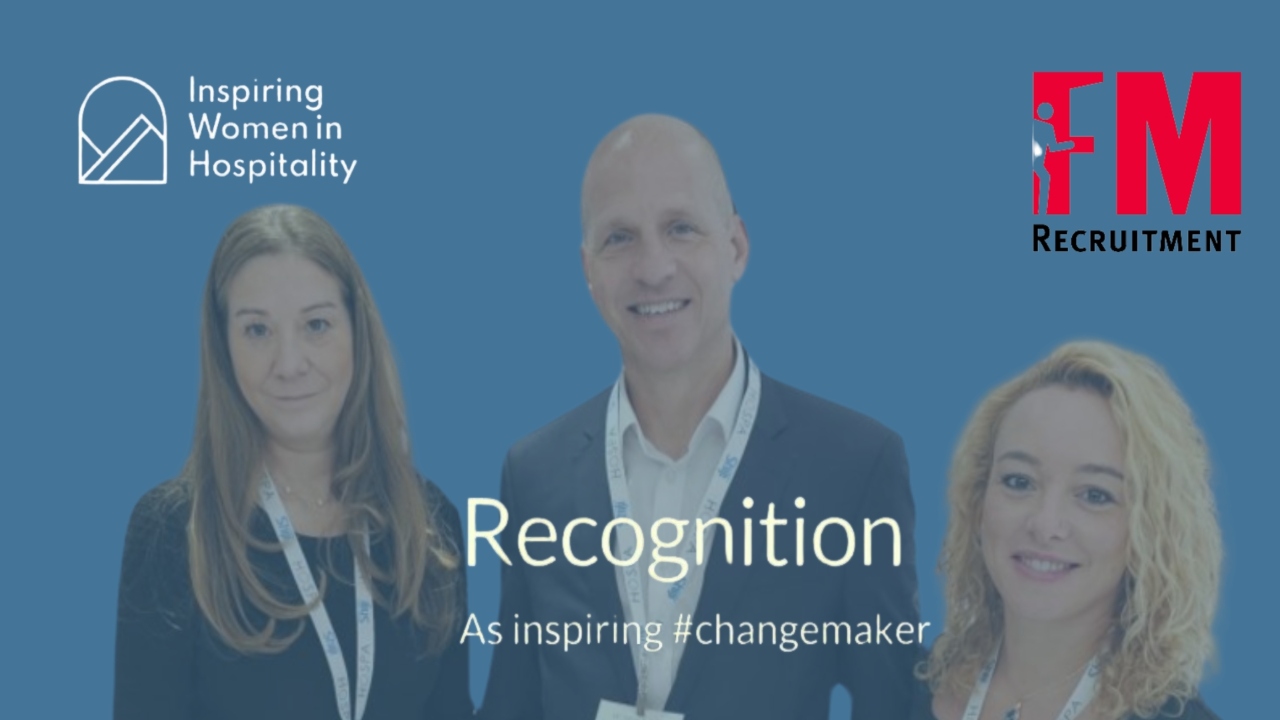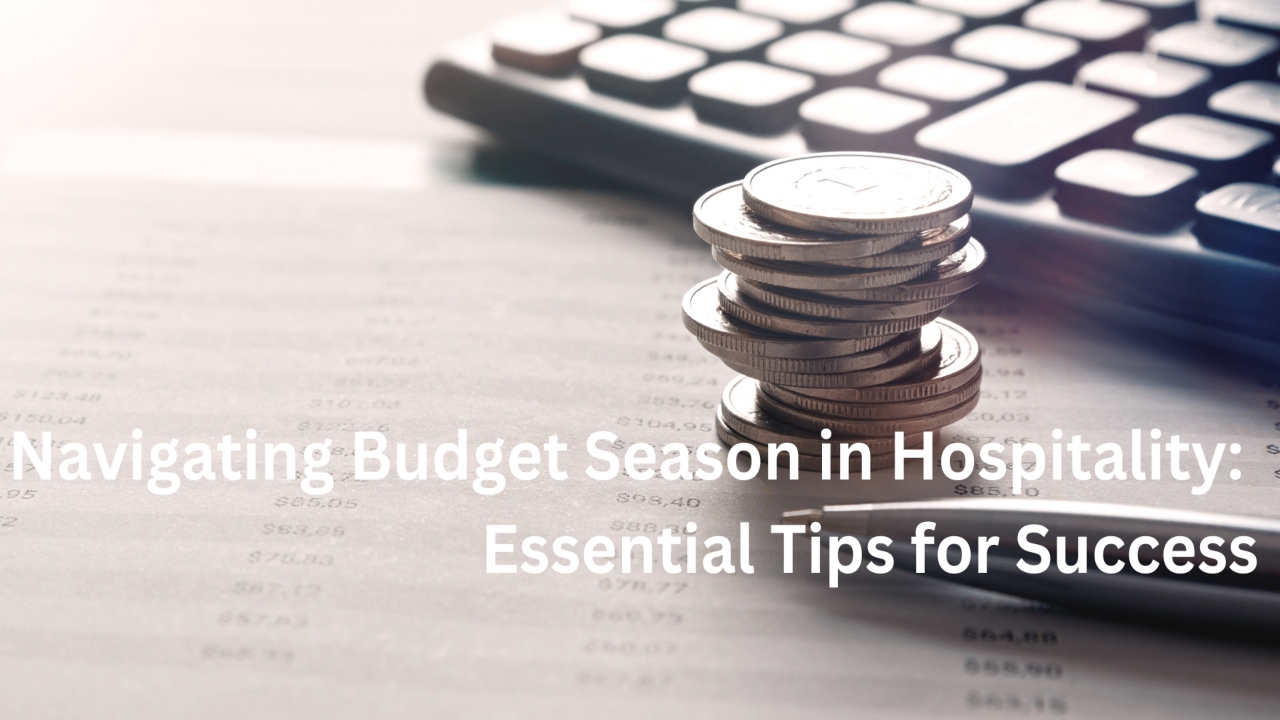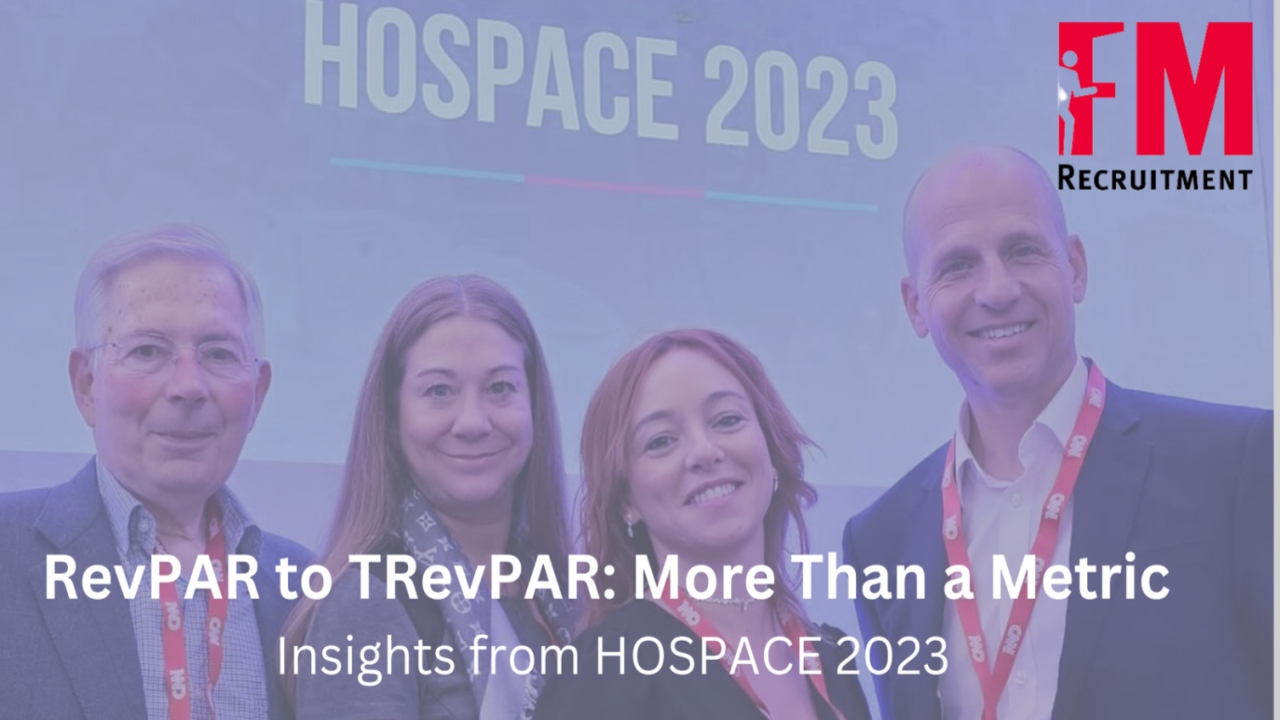At FM Recruitment, we’re incredibly proud to have been recognised by Inspiring Women in Hospitality as a Changemaker, in acknowledgment of our commitment to gender balance and the career development of women in the hospitality industry.
This recognition means a great deal to us. As a team, we’ve always believed that creating space for diverse talent to rise is not only the right thing to do—it’s essential for the future of our industry. To be highlighted by a platform as respected and influential as Inspiring Women in Hospitality is both humbling and energising.
Over the last three years, we’ve seen the conversation around gender balance grow louder, more urgent, and more informed. Thanks to the tireless work of people like Naureen Ahmed and the Inspiring Women community, the systemic challenges women face are being brought into the spotlight—and action is being taken. We are honoured to be part of that movement.
“From the outset, FM Recruitment has stood for fairness and equality,” says Andrea Shaw, Director at FM Recruitment. “Our industry thrives on people. If we’re not nurturing talent across the full spectrum of gender, then we’re doing both individuals and businesses a disservice. I’m proud to be part of a team that believes in action over rhetoric and backs its values with tangible support for women at every stage of their career.”
Leadership That Reflects the Industry We Want
We also know that gender-balanced leadership teams aren’t just fairer—they perform better. Diverse perspectives lead to better decision-making, stronger business outcomes, and more resilient organisations.
“This is not just about equity—it’s about excellence,” adds Chris Denison Smith, Managing Director at FM Recruitment. “We’ve seen first-hand how much stronger businesses become when they embrace diversity at the top. It’s why we continue to push for broader candidate shortlists and why we challenge clients to think more inclusively about leadership.”
Supporting Women in Their Career Progression
As a recruitment firm dedicated to executive appointments in hospitality, we understand the power and responsibility we hold. Every placement is an opportunity to challenge the status quo. Every conversation with a client or candidate is a chance to advocate for more inclusive leadership.
“It’s been an inspiring journey,” says Tariona Lattanzi, Recruitment Consultant at FM Recruitment and one of the founding members of the Inspire Community. “I’ve witnessed the conversation evolve from occasional mentions to a real focus on structural change. Being involved in the Inspire Community has made our commitment stronger—it has deepened our understanding of the role we play as recruiters, advisors, and allies.”
Recognition That Reflects Shared Values
The recognition as a changemaker is particularly meaningful because it also shines a light on our wider team and our sister brand, Madison Mayfair. Together, we’ve worked to ensure gender balance is part of our internal culture as well as our external client work.
“To be recognised alongside Andrea and Tariona as part of the founding Inspire Community is a true honour,” says Mara Cattaneo of Madison Mayfair. “It reminds me that the work we’re doing—mentoring women, advocating for inclusive hiring, and pushing boundaries—isn’t going unnoticed. And more importantly, that it’s making an impact.”
Thank You to the Inspire Community
We extend our heartfelt thanks to Naureen Ahmed and the Inspiring Women in Hospitality community for the vital work they do in keeping these issues at the forefront of the conversation. We are proud to be associated with such a forward-thinking and passionate group of individuals, and we look forward to continuing this journey together.
At FM Recruitment, we remain committed to helping shape a more equitable, inclusive and balanced hospitality industry. There’s still a long way to go, but we’re proud to be walking the path, and even prouder to be doing it with so many inspiring changemakers by our side.
#GenderBalance #InspiringWomen #Changemaker #HospitalityLeadership #FMRecruitment



